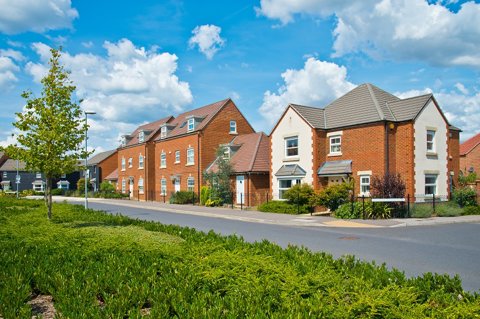For free initial advice on lease extensions contact our Conveyancing Solicitors on the number below.


Maintaining the value of a property and the ability to sell it is very important. Once a residential lease reaches a certain term, it becomes unacceptable for mortgage lending purposes and unattractive to many buyers.
As a general rule of thumb, depending on the individual lender, this is usually 30-50 years plus the term of the mortgage (typically 25 years, so 55-75 in total), but often with a minimum requirement of 70 years. For valuation purposes, 80 years is also a key date, as the premium payable for an extension of the leases will be higher after that.
You should bear in mind that when selling a property with even 85 years remaining on the lease, some buyers could be deterred by the fact that only a few years later, they could have to pay an increased premium to the landlord or freeholder to extend the lease.
The term of the lease can be extended, however, usually subject to payment of a premium to the landlord or freeholder, either by agreement with the landlord or freeholder or alternatively as of right under statute.
For free initial advice get in touch with our Conveyancing Solicitors.



The landlord/freeholder and tenant can agree whatever terms they wish as to the length of the new lease term, the ground rent, any premium payable by the tenant and any other changes to the lease. We suggest that you consider obtaining valuation advice on any premium to be paid and on the other agreed terms and recommend you contact a specialist independent valuer. For contact details of property valuers nationwide get in touch with our Conveyancing Solicitors.
There is a right provided by the Leasehold Reform Housing and Urban Development Act 1993 (as amended) for a tenant to obtain the grant of a new Lease for a term of 90 years, plus the present unexpired term, all at a peppercorn rent (that is, rent free). There are certain qualifying requirements for this type of lease extension, one of which is that you’ve owned the property for a period of two years. Again, we suggest that you consider obtaining valuation advice on any premium to be paid and recommend you contact a specialist valuer. It’s a formal procedure, which usually takes longer and is more expensive in terms of costs.
Simpson Millar5 stars
Conveyancing - Jamuna Rajah
My conveyancing solicitor was Jamuna Rajah. She worked so hard to meet our very tight completion deadline. She had no assistant at the time and a lot of other cases to manage. Her level of expertise a...
Carol Pires
Simpson Millar5 stars
Helen Martin has been an absolute…
Helen Martin has been an absolute superstar throughout my house purchase. She's continued to go over and above to help, and communication has been excellent. I would definitely recommend!
Jonny
Simpson Millar5 stars
We used Simpson Millar for conveyancing…
We used Simpson Millar for conveyancing and they outperformed all previous solicitors that we have used in the past. Communications were swift, precise and they made very good use of software to make...
MB
Simpson Millar5 stars
Friendly team who were supportive…
Friendly team who were supportive throughout. Rhianne was very helpful and ensured everything went as smoothly and quickly as possible. Have used them before too and positive experience, would use aga...
Guest
Simpson Millar4 stars
Great service
Great service, worked hard to get our moving date in place, supporting and had two working on the case in case if absence. My only worry was to Be wary of fraudsters using a similar email! Great ser...
DUTTON
Simpson Millar4 stars
Fee earner was excellent and efficient
Fee earner was excellent and efficient. Assistant fee earner not so efficient in her absence. Overall good experience and would highly rate Helen.
of Pamela Jarvis
Simpson Millar5 stars
★★★★★for Rosie M
★★★★★for Rosie M, the conveyancing solicitor who helped me to jumped over those difficult hurdles and was there to reassured me that everything will be ok in the end.
Ann Page
When you extend the lease, you will have to pay the landlord/freeholder a premium, which frequently runs to thousands or even tens of thousands of pounds.
You’ll also be likely to have to pay the landlord/freeholder’s legal fees and surveyor/valuation fees, as well as your own legal fees. Furthermore, you may need to get your mortgage company involved to sign documents (your lender may also charge a fee).
You should note that as the term remaining on the lease decreases, not only can the property value be affected, but the cost of obtaining a lease extension is likely to increase as the landlord/freeholder will be able to demand a higher premium.
For a free quote to draft a new lease extension agreement contact our Conveyancing Solicitors.
Fill in the form below to get in touch with one of our dedicated team members, or call our team today on: 0800 260 5010